Mozambique: Parliament just closed its first session of the current legislature - Watch
Macron’s re-election could strengthen France’s interest in Cabo Delgado – DW

FILE - Mozambican President Filipe Nyusi and French head of state Emmanuel Macron
- “France has great interests in Africa, not just in Mozambique,” explains economist João Mosca to DW. Regarding any return of TotalEnergies to Cabo Delgado, he says that it is necessary to take the military situation in the province into account.
Given France’s interests on the continent, the newly re-elected French president, Emmanuel Macron, could be expected to invest in an even greater partnership, not only in Mozambique, but also in other parts of Africa, Mozambican economist João Mosca predicts.
In an interview with DW, the researcher from the Observatório do Meio Rural (OMR) notes that there are French companies with great interest in the oil and gas sectors here, such as TotalEnergies.
As for a return to Cabo Delgado by the multinational – which suspended the natural gas production project in Palma in March 2021 after a terrorist attack – the professor says that political conditions can improve a lot, but it is necessary to take into account the military situation in the province and the growing terrorist threats against Indian Ocean islands.

DW Africa: With the French military leaving Mali, one of the countries most involved in the fight against extremism, do you think that Emmanuel Macron’s next term could mean an interest in an even greater partnership in Cabo Delgado?
João Mosca (JM): Yes, because France has possible great interests in Africa, not only in Mozambique. A French ambassador in Maputo said, at a certain reception, that France is the country that has its borders nearer to these countries, including Mozambique. France has protectorates and there may even be an intersection of territorial waters between France, Mozambique and Tanzania, in relation to the Rovuma basin, where there is gas exploration. The gas fields are not yet clearly defined because there are deposits which, at least officially and publicly, are not known. For that reason, and also because of its islands in the Indian Ocean and the former French colonies there, naturally France has this interest. And the country also has national companies with great involvement in the area of oil and gas.
DW Africa: Do you think there could be a greater opening for a possible return of the French multinational Total to Mozambique, now with the victory of Macron?
JM: Political conditions can improve a lot. There is even one point that I would like to make in relation to Mozambique, Rwanda and France. There is a clear triangulation here, although officially it is said that there is not, of support from Rwanda, but with French funds, resources and interests in the matter. All the more so since there have already been non-tripartite meetings, but between [Mozambican President Filipe] Nyusi, with Macron and with [Rwandan Head of State Paul] Kagame.
I think that Total is the company that is best positioned to start operations But their beginning depends a lot on the military situation in Cabo Delgado. Also, increasingly, there may be terrorist threats on Indian Ocean islands.
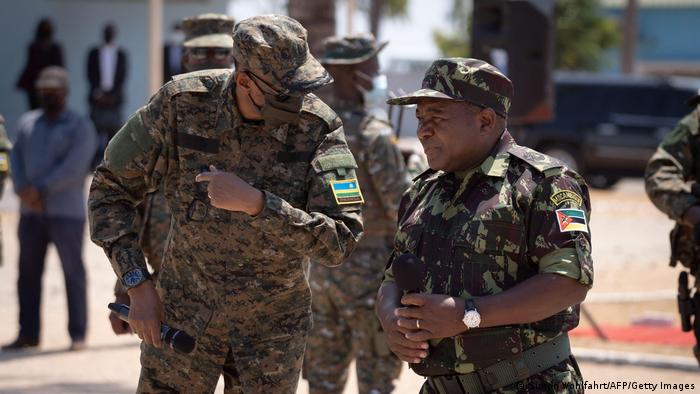
DW Africa: There has been talk for some time as to whether Emmanuel Macron may somehow try to impose the presence of French military forces as a condition for Total’s return to Mozambique. Do you think it’s a possibility?
JM: No, I think it’s a little difficult. The US claims practically a complete monopoly on the monitoring of this zone. All the more so since the US, and I think other Western powers as well, are committed to making it difficult or even preventing China’s entry into this Indian Ocean area. This is something that the Americans want to avoid, considering the strong riches not only in terms of oil and gas, but also in terms of other types of resources and the very geostrategic security of the Indian Ocean. Therefore, there is increasingly a clarification of global geo-strategy here.
I think that, yes, Macron is trying to align himself with the US, but this is more of an alliance to exploit and share the gas that exists in this area, which I think will not only exist in the Rovuma basin. Even Total is increasingly buying up gas stations across the country. But it is perhaps just a signal from Total to show its interest in Mozambique.
DW Africa: Two months ago, the French president also argued that more operations like Rwanda’s are needed, which has been providing support to Mozambique in the fight against insurgents in Cabo Delgado. Do you think this is a possible sign of closer cooperation with Mozambique in this area on the part of Paris?
JM: There is no regular military force – of armies, in their classic conception – that can eliminate a guerrilla. This is more than proven in various parts of the world, for several decades, in different places. So the solution here is not in the military component. Therefore, it is necessary to find another scenario besides military protection, which is also important. (I am not saying that there should be no military forces, especially in defence of certain cities and strategic areas).
I think that there are also Arab countries that will be interested in this war, not only in the short term, because of the price or the relations in OPEC (Organisation of Petroleum Exporting Countries), [because] of a set of factors.
Source: Deutsche Welle


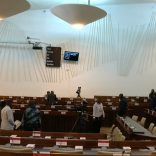
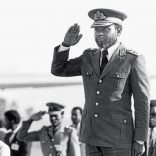
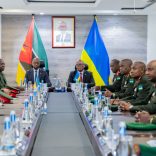
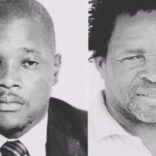
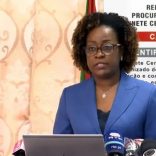
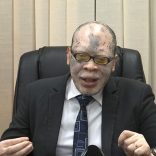





Leave a Reply
Be the First to Comment!
You must be logged in to post a comment.
You must be logged in to post a comment.